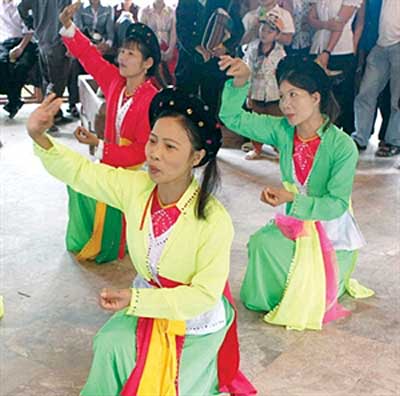A 165 billion VND (7.85 million USD) project funded by the Government will help encourage artisans, amateur singers and young people in the northern province of Phu Tho to preserve xoan singing.
Nguyen Ngoc An, director of the provincial Department of Culture, Sports and Tourism, said the project is part of efforts to take xoan singing off the list of UNESCO cultural intangible heritage forms in urgent need of preservation by 2015. Under the project, a centre for training local singers will be established, researchers will work to digitalise xoan songs and traditional festivals will be restored.

"Preserving and developing is hard because artisans are getting older. Meanwhile, youths lack knowledge about xoan singing and are not aware of the importance of protecting it as a form of world cultural heritage," An said.
Nguyen Thi Lich, head of An Thai xoan singing group in Phuong Lau Commune, is one of a handful of artisans making efforts to teach xoan singing to young people. Her classes are very crowded with learners from six to 60 years of age.
"I'm glad because some of my talented students have become popular xoan singers and can teach others," Lich said.
In addition to holding classes in her home, she's gone to teach the art at primary, junior and high schools throughout the province.
"Teaching xoan singing in the schools is key to helping young people contribute to keep xoan singing alive," said Nguyen Van Liem, deputy director of the provincial Department of Training and Education.
Xoan singing, also known as hat cua dinh (singing at the communal house), has existed since the Hung Kings dynasty more than 2,000 years ago. In the past, people in Van Lang nation (now Phu Tho Province) sang these songs in the spring to welcome the new year. There are three forms of xoan singing: ritual singing to pray for good crops and health, worship singing to commemorate the Hung Kings and village guardian gods and festive singing, a form of love duet.
The art form has been granted the "world cultural heritage" title by UNESCO in November 2011.